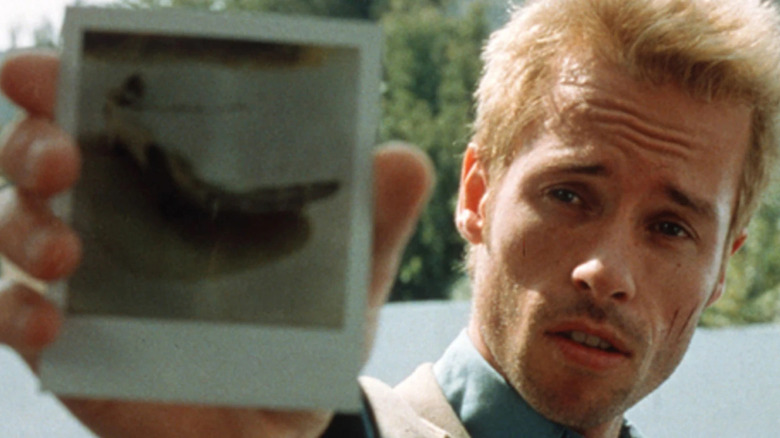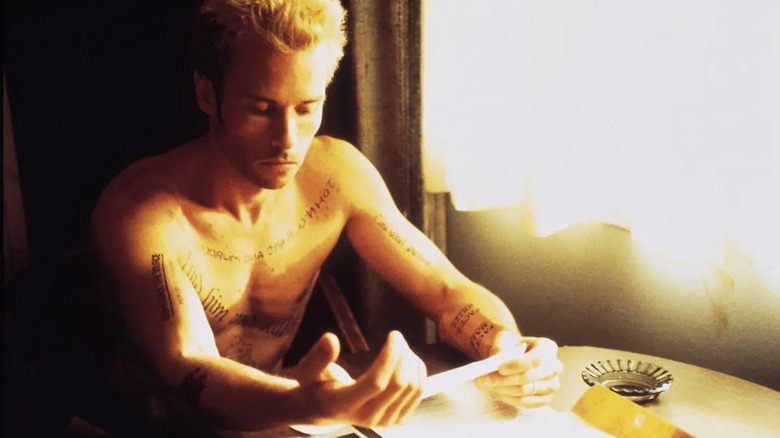Director Christopher Nolan Never Expected The Mind-Bending Fallout Of Memento
When "Memento" arrived in 2000, it was a big deal. This small indie film that cost $9 million to make became a big hit, spurned on by strong word of mouth that kept talking up the movie's narrative trick: it moved backwards. Rather than tell a straightforward story, Christopher Nolan's mystery-thriller runs in reverse, with each new scene giving us insight into a scene we just watched. Little by little, we piece together the mystery, just like the film's main character, played by Guy Pearce.
If you need a refresher, here's the gist: Pearce's character, Leonard "Lenny" Shelby, has anterograde amnesia — he's unable to retain new memories. The condition arose when he was injured during an attack that resulted in his wife's murder. Now, Lenny uses clues he pieces together in order to find (and kill) the man who murdered his wife. But of course, nothing is quite as it seems, and Nolan methodically dishes out information little by little as the story moves backwards in time.
While the backwards narrative was part of the movie's hook, it also lead to some confusion. Some folks just couldn't figure out what the heck was going on. Things got so confusing that the home media release even included an option to "unlock" a linear, forward-moving version of the movie. There was also a special feature in which Nolan got in front of a chalkboard and explained the film's structure like a college professor giving a lecture. But according to Nolan, he never expected things to be so confusing.
Christopher Nolan didn't anticipate that Memento would confuse people
Before we go any further, I have to ask: did you find "Memento" confusing, dear reader? I personally never thought the film was that impenetrable. Basically, if you just sit back and pay attention, you'll be able to follow along. True, Nolan leaves some things deliberately up in the air, but I don't see those things as "confusing." I just take them as storytelling devices that Nolan employed. And that's seemingly how Nolan saw things, too. While speaking with MTV, the filmmaker revealed that he never expected people to be so befuddled by "Memento."
"II didn't at all," Nolan said. "Amnesia is such a part of film noir. I just saw it as part of a movie I wanted to see. So I didn't anticipate how much it would spin some heads. I never anticipated that at all." In other words, Nolan was working with tropes that are common to the film noir genre, and just giving them a little twist. He assumed people would come along for the ride. For the most part, I think he was correct. "Memento" ended up being a big hit and helped launch Nolan's career. It wasn't his first movie (that would be "Following"), but it was definitely the movie that put him on the map.

